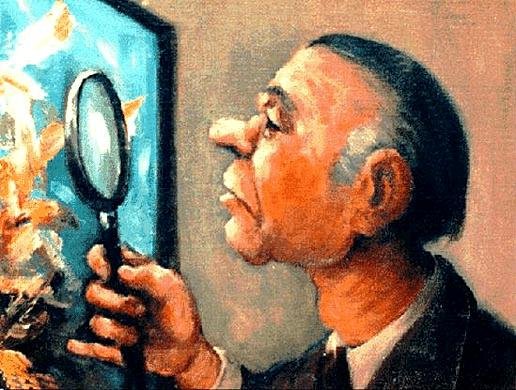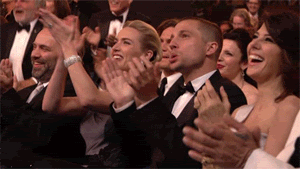Five Specific Errors of Reactions

Image Source
- Automatic Rejection
- Changing the Subject
- Shifting the Burden of Proof
- Straw Man
- Attacking the Critic
Automatic Rejection
Critical thinkers requires a reasonable basis for tolerating or dismissing any argument, including difficulties to our ideas. The best way to build up that basis is to assess the test and make a honest assurance of its value. Enjoying or despising it, feeling satisfied or disappointed with it, is insufficient. To dismiss criticism without giving it a reasonable hearing is to submit the error of automatic rejection.
A few years ago, Vincent Ruggiero was talking about a provocative article on the impacts of marijuana with a college educator companion. The article, which showed up in the Journal of the American Medical Association, revealed the aftereffects of a clinical study of marijuana utilization. The creators reasoned that as opposed to what is oftentimes revealed, they have observed the impact of marijuana to be not only that of a mild intoxicant which causes a slight embellishment of common adolescent behavior, however a particular and separate clinical syndrome.

Image Source
The important impacts they noted were aggravated attention to the self, confusion, apathy, and poor reality testing. They introduced the subtle elements of thirteen real cases to exhibit these impacts. His companion trusted that his own encounters with marijuana while in college gave every one of these suggestions and that the adjustments in his behavior intently paralleled those portrayed in the thirteen cases. That is, he had turned out to be fairly irritable, slovenly and forgetful, had encountered trouble focusing on his studies and paying consideration in class, and had endured visit cerebral pains.
Amid that time, he clarified, he not just expelled the then-accessible medical research that tested his view that pot smoking was safe, he likewise prevented the declaration from claiming his own involvement with the drug! His automatic rejection of whatever tested his view was so powerful, he noticed, that five years go before he could consider the evidence decently.
The impulse to automatically dismiss difficulties to your ideas can be intense. A good way to reduce that enticement is to put some emotional separation between your ideas and your ego. Consider them belonging that you can keep or dispose of as opposed to as expansions of your self. This will make you less cautious about them.

Image Source
Changing the Subject
Changing the subject comprises of suddenly handing a discourse over an alternate course. Only one out of every odd move constitutes an error. The new course might be additionally encouraging. Or, on the other hand it might be a way to give an auspicious yet neighborly reprimand. Assume someone asks you a discourteous or improperly individual question, for example, "What is your annual income?" or "Why you and your life partner have any children?" Having no commitment to answer, you may state something absolutely random to the question, for example, "I ponder which groups will make it to the Super Bowl" or "The Northeast has had an uncommonly hot summer this year." This is a flawlessly real way of telling the individual the question was shameful.
Changing the subject is an error just when the first issue is fitting and the move is utilized misleadingly. Tragically, this sort of move is regular in meetings of public figures. The interviewer poses an inquiry, and the interviewee maintains a strategic distance from that question and discusses something different. Astute people will manage to say the subject of the question and consequently make the feeling that they are in effect direct when in certainty they are definitely not.
For instance, a presidential candidate posed the inquiry What is your position on abortion? might answer something like this: The issue of abortion has isolated our country more than some other issue of the twentieth century. What bothers me more than anything else is that the tone of discourse has turned out to be so unforgiving and the doubt of other people's respectability so extreme that significant debate is everything except outlandish. We should have that debate, the issue shouts out for it, and in the event that I am chosen, I vow to do my part to make the conditions that will make it conceivable. This is a persuasive, moving response to a question that wasn't inquired!
In the interim, the question that was asked is left unanswered. In this case there is good reason to speculate that the candidate expected not to answer the question in light of the fact that any answer he could give would distance some gathering of voters. Truth be told, he may have been cautioned by consultants before starting his crusade, "At whatever point you are gotten some information about abortion, change the subject." Politicians are by all account not the only ones who move issues to abstain from tending to troublesome questions or to escape conceivably clumsy circumstances. This strategy is utilized as a part of all walks of life.

Image Source
Shifting the Burden of Proof
The error of shifting the burden of proof comprises of demanding that others invalidate our assertions. Suppose Bill declares, "The best single reason for detonating health care costs in this nation is superfluous referral of patients for exorbitant medical testing." Barbara at that point asks Bill to clarify for what good reason he trusts that to be the case. He reacts, "Would you be able to refer to any evidence to invalidate it? In the event that you can't, at that point say as much." Bill is liable of shifting the burden of proof.
He made an assertion, he ought to be prepared to help it if asked and not demand that others invalidate it. The decide is that whoever makes the assertion bears the burden of supporting it, and the more the assertion departs from what educated people trust, the more prominent the duty of the individual making the assertion to help it. You will be less inclined to move the burden of proof on the off chance that you figure out how to anticipate that your ideas will be questioned and criticized and plan to help them before you express them.

Image Source
Straw Man
The term straw man was coined by logicians to mean an argument without substance. The term imparts its importance to the word scarecrow, a heap of straw stuffed in human clothing and put in a garden or field to scare away winged creatures. To confer the error of straw man is to put false words in someone else's mouth and afterward uncover their misrepresentation, helpfully overlooking that the other individual never said them. To stay away from straw man, be conscientiously exact in citing or rewording other people's words.
Attacking the Critic
Attacking the critic is the endeavor to dishonor an idea or argument by belittling the individual who communicated it. People regularly depend on this error of reaction after their ideas or behaviors have been raised doubt about. Rather than reacting to the main problem, the genuine ideas or behaviors that have been questioned, they make a diversionary issue, the genuine or envisioned failings, or the inspiration, of the individual who raised the issue.

Image Source
At the point when Paula Jones blamed then president Clinton for having made disgraceful sexual advances toward her, one Clinton spokesman made the remark that practically anything could be expert "by dragging a hundred dollar bill through a trailer court," inferring that Jones' character was suspect. At the point when other ladies approached with charges that Clinton had bothered them, the president's guides embraced what wound up noticeably known as the nuts and sluts procedure, that is, they hinted that anyone who made such a charge must be mentally unsteady or sexually indiscriminate and in this way conniving.
Afterward, when Dick Morris, a previous counsel to Clinton, joined Fox News as a specialist and offered his examination of Clinton's behavior and the affirmed conceal systems, some Clinton followers asserted that nothing Morris said was sound since he himself had conferred sexual careless activities and furthermore was displeased over his loss of status in the White House.
Attacking the critic is an error since ideas and people are not synonymous. However fascinating it might be to test people's thought processes, such investigation discloses to us nothing about the nature of their ideas. Indeed, even people with questionable thought processes and inside and out liars now and again come clean. It is not necessarily the case that honesty is immaterial or that we ought to unquestioningly acknowledge the word of people whose respectability we have reason to speculate. It is just to state that it is unreasonable to substitute theories or judgments about people themselves for judgments of their ideas.

Image Source

great post thanks dear

Downvoting a post can decrease pending rewards and make it less visible. Common reasons:
Submit
I agree,
Downvoting a post can decrease pending rewards and make it less visible. Common reasons:
Submit
Great post
Downvoting a post can decrease pending rewards and make it less visible. Common reasons:
Submit
Thanks
Downvoting a post can decrease pending rewards and make it less visible. Common reasons:
Submit
Nice one mate .. you a psychologist? ;) Cheers
Downvoting a post can decrease pending rewards and make it less visible. Common reasons:
Submit
Not exactly.
Downvoting a post can decrease pending rewards and make it less visible. Common reasons:
Submit
You should be ;)
Downvoting a post can decrease pending rewards and make it less visible. Common reasons:
Submit